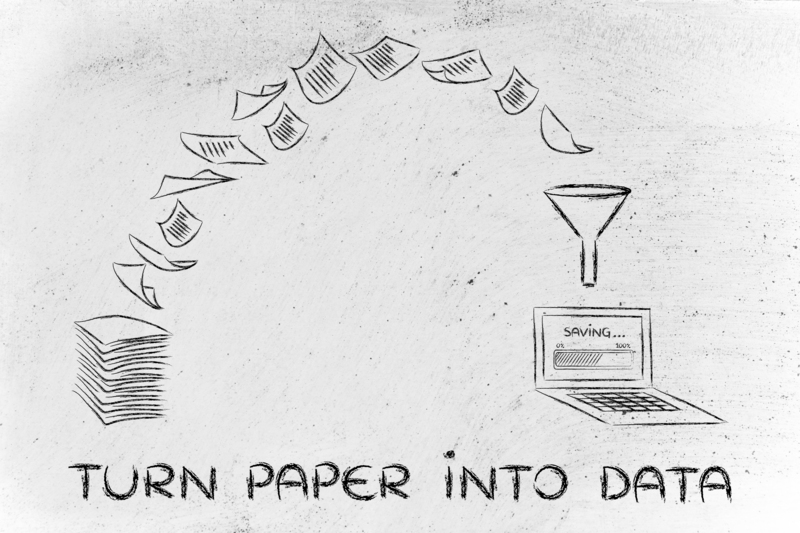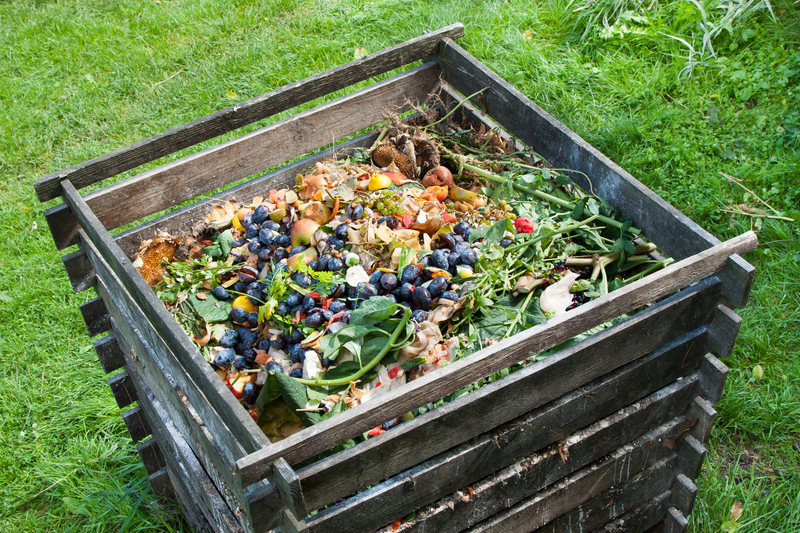Hands-On Techniques for Lowering Household Waste
Posted on 09/09/2025
Hands-On Techniques for Lowering Household Waste
Reducing household waste has become a crucial priority for eco-conscious families and individuals across the globe. With the growing emphasis on sustainability, adopting practical ways to limit everyday waste not only benefits the environment but also saves money and fosters mindful living. In this comprehensive guide, we'll share actionable, hands-on techniques for lowering household waste that can be easily implemented no matter your current lifestyle or location.
Understanding the Importance of Reducing Household Waste
Today's society is grappling with unprecedented levels of waste -- every year, an estimated 2.01 billion tonnes of municipal solid waste are generated globally, according to the World Bank. A significant portion of this comes from our own homes. Why does this matter?
- Reduces Landfill Burden: Diverting even small amounts of household waste decreases strain on already-overflowing landfills.
- Mitigates Climate Change: Waste, particularly organic materials, emits greenhouse gases such as methane if dumped in landfills.
- Protects Land and Water Resources: Reducing disposal prevents contamination and better preserves natural habitats.
- Saves Financial Resources: Being smart with purchases and reusing materials cuts down household expenses in the long run.
Lowering household waste is thus an impactful everyday action with far-reaching environmental and economic benefits.

How to Get Started: Assessing and Auditing Your Waste
Before making significant changes, it's vital to get a clear picture of your current waste habits. A waste audit can reveal surprising trends in what you throw away and where improvements can be made.
Step 1: Conduct a Simple Home Waste Audit
- Collect: For one week, gather all your household waste by category (i.e., food scraps, plastics, paper, glass, and non-recyclables).
- Analyze: At the end of the week, sort your waste and note which items you generate most frequently.
- Identify Patterns: Are you discarding a lot of packaging, food waste, or single-use products?
- Set Goals: Based on your findings, decide which areas you want to tackle first -- for example, reducing food waste or minimizing plastic disposables.
Hands-On Strategies for Reducing Household Waste
Now that you're aware of your waste footprint, it's time to explore hands-on techniques for lowering household waste at home. These methods focus on practical, everyday actions that are easy to sustain.
1. Embrace the Five R's: Refuse, Reduce, Reuse, Recycle, Rot
- Refuse: Say no to items you don't need, especially those with excessive packaging or single-use plastics.
- Reduce: Opt for high-quality, long-lasting products rather than disposable alternatives.
- Reuse: Find creative ways to repurpose materials instead of throwing them away. For example, glass jars can be used for storage.
- Recycle: Properly sort your waste and follow local recycling guidelines to maximize resource recovery.
- Rot: Compost food scraps and yard waste, returning valuable nutrients to the soil.
2. Cut Down on Food Waste with Smart Planning
An estimated one-third of all food produced for human consumption is lost or wasted, making this one of the largest sources of household trash. Here's how to minimize it:
- Plan Meals: Write out grocery lists and stick to them to avoid impulse buys or duplicate purchases.
- Use Leftovers Creatively: Transform excess food into casseroles, soups, or smoothies.
- Check Expiry Dates: Organize your pantry to use items before they spoil and freeze perishables when possible.
- Compost Scraps: Composting not only reduces waste but also creates nutrient-rich material for your garden.
3. Shop Smarter: Eco-Friendly Purchasing Habits
- Buy in Bulk: Purchasing bulk items reduces packaging waste and often saves money.
- Choose Minimal Packaging: Support brands that use recyclable or biodegradable packaging.
- Bring Your Own Bags: Avoid single-use plastic bags; instead, keep reusable bags handy.
- Purchase Durable Goods: Invest in products designed for longevity rather than convenience.
4. Composting: Transforming Organic Waste
Composting is a cornerstone technique for lowering household waste. Even in urban apartments, composting is possible with small bins or community programs.
- Start a Backyard Compost: Turn kitchen scraps, coffee grounds, eggshells, and yard clippings into fertile compost.
- Try Vermicomposting: Use red worms to break down organic matter quickly in a compact bin.
- Join Community Compost Initiatives: Many cities offer drop-off points for organic waste.
- Compostable Items: Fruit/vegetable peels, coffee filters, tea bags, cardboard, yard trimmings.
- Avoid Composting: Meat, dairy, oily foods, and diseased plants -- these attract pests or hinder the compost process.
5. Eliminate Single-Use Products
A major source of home waste is single-use items. Replace these with reusable alternatives to make a significant impact:
- Switch to Reusable Water Bottles: Stainless steel or glass bottles last for years and prevent plastic waste.
- Use Cloth Napkins and Towels: Fabric napkins, dishcloths, and rags replace disposable paper products.
- Opt for Refillable Containers: Many stores allow you to bring your own containers for pantry staples, cleaning supplies, and even personal care products.
- Reusable Food Storage: Invest in containers made from glass, stainless steel, or silicone instead of disposable plastic wrap or bags.
6. Advanced Waste-Reduction Techniques
- Upcycle and DIY: Convert jars, tins, or even old furniture into useful household items or decor.
- Borrow, Rent, or Share: Instead of buying infrequently used items, consider borrowing from neighbors or using rental services.
- Repair Instead of Replace: Learn basic repair skills for clothing, electronics, and small appliances.
- Host Swap Events: Organize or participate in local clothing, book, or toy swaps.
Maximizing Your Impact: Community and Family Involvement
Lowering household waste is most effective when the entire household participates. Here's how to engage your loved ones and even your community:
- Set Waste-Reduction Challenges: Compete to see who produces the least amount of trash in a week.
- Create Recycling Stations: Set up labeled bins in high-traffic areas to make sorting easy for everyone.
- Educate with Fun: Use games or crafts to teach kids about recycling and resource conservation.
- Connect With Neighbors: Start a neighborhood compost pile or recycling initiative.
Tips for Maintaining a Low-Waste Lifestyle
- Be Patient and Persistent: Change takes time -- celebrate small victories.
- Track Your Progress: Monitor your waste reduction efforts and adjust as needed.
- Stay Informed: Follow blogs, social media accounts, and city programs for new ideas and incentives.
- Share Ideas: Inspire others by sharing your journey and successful techniques for lowering household waste!
Common Mistakes and How to Avoid Them
Transitioning to a low-waste home is a journey. Here are some common pitfalls and how to sidestep them:
- Trying To Do Everything At Once: Focus on small, manageable steps and build momentum over time.
- Ignoring Local Guidelines: Recycling rules vary by location; always check your municipality's recommendations.
- Forgetting About Hidden Waste: Be mindful of less obvious waste streams like e-waste and hazardous household products.
- Neglecting Proper Washing: Reusable containers and shopping bags must be cleaned to prevent bacteria and odors.
The Long-Term Benefits of Reducing Household Waste
*Consistent, hands-on waste reduction efforts bring about tangible rewards both at home and on a broader scale:*
- Saves Money: Spending less on disposables and wasted food increases your household budget.
- Healthier Home: Fewer chemicals and less clutter create a cleaner, safer living space.
- Environmental Stewardship: Lower waste means fewer resources extracted and less pollution overall.
- Inspires Change: Your example can encourage friends, family, and even businesses to follow suit.

Resources and Further Reading
For more in-depth guides and tips on zero-waste living and sustainable habits, explore the following:
- EPA: Reduce, Reuse, Recycle
- Zero Waste Home
- Food Waste Reduction Resources
- Plastic Pollution Coalition
Conclusion: Take Action With Hands-On Techniques for a Greener Home
Transitioning to a lower-waste lifestyle is within your reach! By taking hands-on steps to reduce household waste -- from smart shopping and composting to upcycling and community involvement -- you're making a significant contribution to a healthier planet. Remember, every action counts and your efforts can inspire those around you to make environmentally conscious choices as well.
Begin your journey today by conducting a simple waste audit, involving your family, and tackling waste reduction one step at a time. Together, we can build a more sustainable, less wasteful world, starting right at home.
Latest Posts
Inspiring School Recycling Plans That Make a Difference
Making the Case for Professional Waste Clearance Services
How to Optimize Your Skip Hire Strategy
Historical Highlights: How Different Societies Managed Waste
How to Ensure a Welcoming Atmosphere: Pre-party Cleaning Insights





